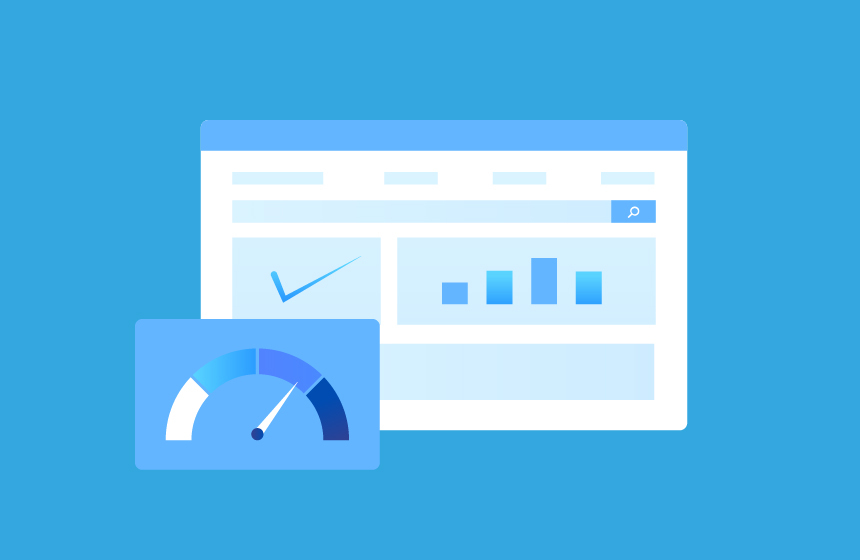In today’s digital era, website speed is more than a luxury—it’s necessary. The quick loading of your website elevates user experience and significantly influences your search engine rankings, a crucial factor for online visibility. This is where VPS (Virtual Private Server) hosting emerges as a game-changer. Offering a middle ground between the affordability of shared hosting and the power of dedicated servers, VPS hosting provides a unique combination of performance, control, and cost-effectiveness.
In this insightful exploration, we’ll dive into VPS hosting. You’ll learn how it can revolutionize your website’s speed and performance and understand the critical factors to consider when choosing the perfect VPS hosting plan. Get ready to unlock the potential of VPS hosting and propel your website to new performance heights.
Table of Contents
How Does VPS Hosting Improve Website Speed?
VPS hosting dramatically improves website speed and reliability. Unlike shared hosting, where resources are distributed among multiple users, VPS provides dedicated resources to each user. This means you get a specified amount of CPU, RAM, and bandwidth not shared with other websites. This dedicated environment reduces server load, leading to faster loading times and better overall performance.
Learn More: The Ultimate Guide to Web Hosting: Choosing The Right Hosting
Optimising VPS Performance
To harness the full potential of a Virtual Private Server (VPS), it is imperative to optimize its performance. Here are some essential steps to ensure your VPS operates at peak efficiency:
Choose the Right Operating System
The choice of operating system (OS) can significantly impact the performance of your VPS. Linux servers are often favoured for their resource efficiency compared to Windows servers. However, the best choice ultimately depends on your specific requirements and technical expertise. Assess your needs and choose an OS that aligns well with your server management skills and application requirements.
Regular Updates and Maintenance
Keeping your server’s operating system, applications, and scripts updated is crucial. Regular updates not only enhance performance but also bolster security. These updates patch vulnerabilities and improve the overall stability of your server. Set a routine for checking and applying updates to ensure your system is always running the latest, most secure software versions.
Effective Resource Management
Monitor and manage your VPS resources to match your website’s demands. Avoid overburdening your server with excessive applications or services that aren’t necessary. Overloading your server can deplete critical resources, leading to slower response times. Regularly review your usage and adjust resources like CPU, RAM, and storage to ensure optimal performance.
Implementing Caching Solutions
Caching is a powerful method to enhance website speed. Tools like Varnish or Redis can significantly reduce the server’s workload by storing frequently accessed data in memory. This reduces the time required to serve this data to visitors, speeding up your website.
Utilizing a Content Delivery Network (CDN)
A CDN can dramatically improve your website’s load time. It works by caching your site’s content on a network of servers worldwide. This means that the server closest to your user will deliver the content, reducing latency and speeding up the delivery of your website to the end user.
Optimizing Web and Database Servers
Tailoring the settings of your web and database servers can lead to substantial improvements in performance. For web servers like Apache or Nginx, tweaking configuration files to handle connections more efficiently can make a big difference. Similarly, optimising databases like MySQL, for instance, by adjusting memory allocation and query cache, can enhance the speed and responsiveness of your applications.
Learn: How Does VPS Hosting Work?
Common Causes of Slow VPS Performance
A Virtual Private Server (VPS) is a powerful tool for website hosting, but it may perform poorly in some instances. Understanding the common causes of slow VPS performance can help you diagnose and rectify issues more effectively. Here are some key factors:
Limited Resources
One of the primary reasons for a slow VPS is insufficient resources. If your VPS needs more RAM, CPU power, or storage, it struggles to handle high demands, particularly during traffic spikes. It’s crucial to choose a VPS plan that matches your website’s resource requirements and monitor usage regularly to ensure the resources remain sufficient.
The ‘Noisy Neighbor’ Effect
In shared VPS environments, your server’s performance can be impacted by other users on the same physical server. This phenomenon, known as the ‘noisy neighbor’ effect, occurs when these other users consume excessive resources, leaving less available for your VPS. Selecting a hosting provider that effectively manages resource allocation is essential to minimize this risk.
Unoptimized Configurations
A VPS with poorly configured settings can lead to reduced performance. This includes unoptimized web servers (like Apache or Nginx), databases (like MySQL), and running unnecessary services or applications. Conducting regular audits and making necessary adjustments is vital for maintaining optimal performance.
Inadequate Security Measures
Security lapses can not only compromise the safety of your website but also its performance. Breaches or malware infections can consume resources and slow down your server. Implementing robust security measures, such as firewalls, intrusion detection systems, and regular malware scans, is essential to protect and maintain the speed of your VPS.
Addressing these issues is critical to ensuring that your VPS provides the fast and reliable performance necessary for your website’s success. Regular monitoring and maintenance and choosing the right hosting plan and provider are fundamental steps in achieving optimal VPS performance.
Read: Website Hosting Providers In The UK For Small Businesses
Choosing the Best VPS Hosting Plan
Selecting the right VPS hosting plan is a critical decision that can significantly affect your website’s performance. Consider the following factors:
Resource Needs
Assess your website’s requirements in terms of CPU, RAM, storage, and bandwidth. Opt for a plan that offers more than your current needs to accommodate future growth.
Scalability
Your hosting plan should be able to scale with your business. Look for providers who offer easy scalability options so you can upgrade resources as needed.
Reliability and Uptime
Choose a hosting provider with a proven reliability and high uptime track record. Frequent downtimes can negatively impact your website’s performance and reputation.
Customer Support
Good customer support is invaluable. Opt for a hosting provider that offers 24/7 support through various channels like chat, email, or phone.
Know More: 3 Steps to Speed Up Your Website on VPS Hosting
Security Features
Security is paramount in VPS hosting. Ensure the provider offers robust security features like firewalls, DDoS protection, and regular backups.
Price
While choosing the cheapest option is tempting, balancing cost with the features and performance you need is significant. Don’t compromise essential aspects for a lower price.
Can VPS Increase Internet Speed?
It’s a common misconception that VPS hosting can increase internet speed. VPS hosting improves the server response time, meaning your website’s data is delivered faster to users’ browsers. However, users’ actual internet speed depends on their internet service providers and cannot be enhanced by VPS hosting.
Conclusion
Optimizing your website for speed is non-negotiable in today’s fast-paced digital landscape, and VPS hosting is a reliable solution to achieve this. VPS hosting ensures that your website runs efficiently and smoothly by providing dedicated resources and the ability to fine-tune your server environment. Remember, the right VPS hosting plan can significantly affect your website’s performance, so choose wisely.
Ready to give your website the speed boost it deserves? Explore our range of VPS hosting plans tailored to every need. Visit our VPS hosting page to find the perfect match for your website!

